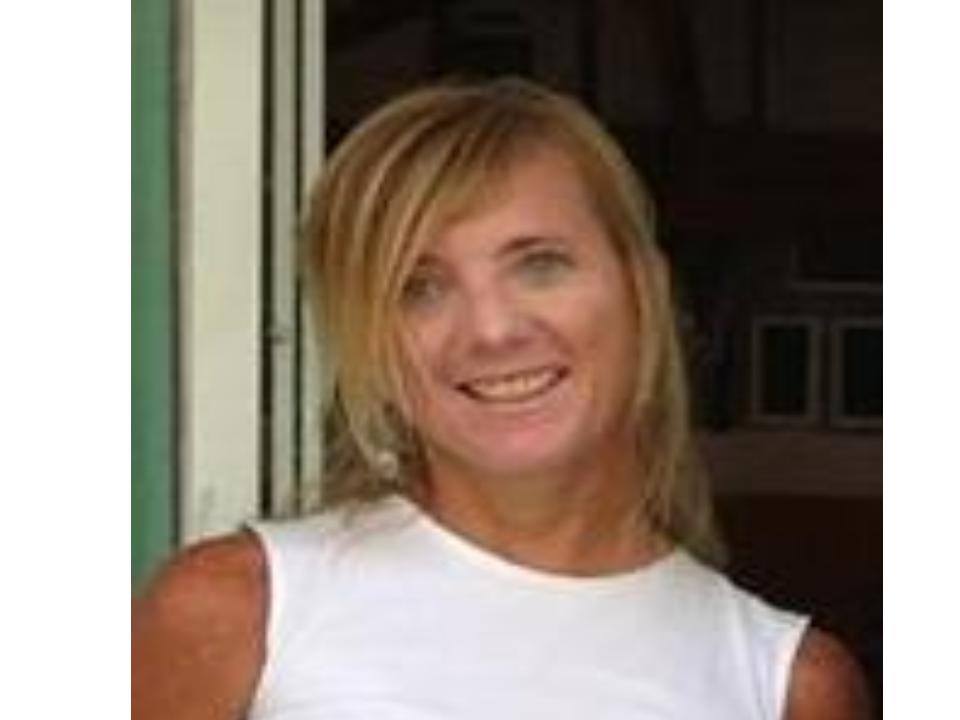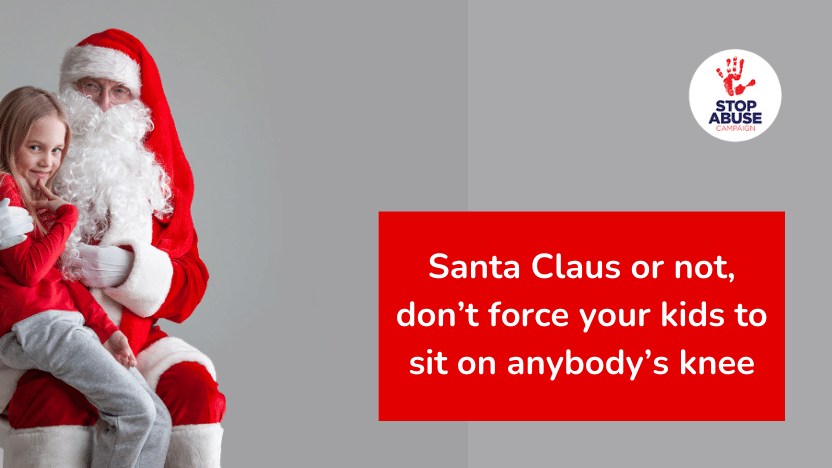I like Santa Claus. Really. I do. I like the pretend notion of a happy and giving world where all children are provided with a chance for holiday happiness. I even like the idea that Christmas is such a wonderful time of year that magical things seem possible. What I don’t like is the forcing of children to sit on aforementioned elfin leader’s lap, effectively damaging their body autonomy. You’ve seen it, haven’t you? The terrified, screaming toddler at the mall, forced to sit on the lap of a complete stranger and remain seated until his/her picture is taken? So many things wrong with this, not the least of which is forcing a child to sit with someone he/she is clearly uncomfortable with. Not to mention the trauma inflicted by being ignored while crying. Maybe this Christmas season we could rethink the whole forced photo op with Santa and turn our energy toward learning how to prevent our children from being sexually abused, because wouldn’t that be the best holiday happening imaginable? Preventing abuse is as simple as giving our children the power and the knowledge to trust their instincts, say no to things that make them uncomfortable and eliminating isolated, or one on one situations.
What if abuse does happen? What if our child discloses abuse to us? Then what? We know the words. We know to listen, believe and react responsibly, but what do the words actually mean? Listen. That’s pretty self-explanatory. Believe. Simple enough, by mere definition we all know how to believe when someone tells us something. React Responsibly? There’s where it can get a little more complicated.
If a child discloses abuse, remain calm. While it is certainly completely understandable to feel angry, upset, frustrated, overwhelmed, it is not okay to show this particular reaction to the child who has just trusted you enough to disclose. Keeping calm will help to reassure the child that the abuse is not his or her fault, but overreacting may hinder the healing process by making the child feel responsible. By choosing to disclose abuse, the child has broken through the barriers of fear, secrecy, and shame, and by remaining calm in the moment, you are helping to ensure the child doesn’t regret telling you. When we react with anger or disbelief, the child is likely to shut down or feel even more ashamed or guilty.
Understand that disclosure is a process. Children tend to tell about abuse over time, reading your response and choosing to keep or to keep silent. Disclosure may take place over a period of hours, or days or even weeks or longer. Be comfortable in the silence and be patient and open as you wait. Don’t be in a rush to “get to the bottom of it.” Don’t ask leading questions about the details. Questions can come across as judgment and can confuse the child’s memory of events. Ask open ended questions like, “What happened next?” or “Do you want to tell me more?”
Reassure. Say things like, “I believe you,” “It’s not your fault,” “I’m here to help you.” Don’t make broad or overreaching promises about the future.
Seek help from a professional who is trained to talk with children about sexual abuse. Report the abuse to the police or child protective services. Be clear and specific when reporting abuse. If your community has a Children’s Advocacy Center, utilize their services; there is often a good partnership between law enforcement, Department of Social Services, and the Children’s Advocacy Center. To find a Children’s Advocacy Center near you, contact the National Children’s Alliance at www.nationalchildrensalliance.org or call 1-800-239-9950.
Giving our children the gift of innocence this holiday season and the gift of body autonomy is perhaps the best gift of all, so with that in mind – Happy Hanukah! Happy Kwanza! Merry Christmas! Happy Holidays start with respecting and protecting our children.
Do you know your score?
Discover your ACE score and unlock a new understanding of your life. Take the test and gain insights into how your early experiences shape your well-being. Don't let your past define you – empower yourself with knowledge.

Laura Fogarty
Editor, Ask Lala
Laura Fogarty writes “Ask Lala” for the Stop Abuse Campaign. She is a mother, an advocate and the author of two children’s abuse prevention books: I’M THE BOSS OF ME! and WE ARE JUST ALIKE!
